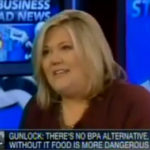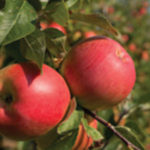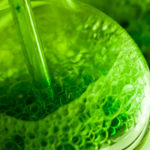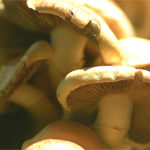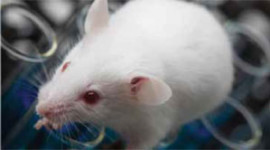"On Chemicals and Cancer: Response to Fran Drescher," by Angela Logomasini. I was pleased to see that Fran Drescher responded to my article on cancer trends. Drescher’s willingness to share what she learned from her struggle with cancer as well as her work at Cancer Schmancer offers some important contributions in the battle against cancer, but her focus on chemicals is misplaced. Read the full article on IWF's Inkwell Blog. … [Read more...]
Cow Manure: Not Greener than Synthetic Fertilizers
"No, Cows Don't Make Fertilizer," By Steve Savage. Fertilizer that comes from cows or other animals does not really originate with them. Manure from cows and other animals has been used as a crop fertilizer for millennia, and it is still used today for about 5% of US crop acres and for a high proportion of organic acres. It is often spoken of as an alternative to "outside inputs" for crops and as a superior option relative to "synthetic fertilizers." ... But the animals didn't "make" any of … [Read more...]
Danger from Culture of Alarmism
"How the Left Breeds Alarm to Win Policy Battles," by Julie Gunlock. The president told Americans to gird for a disaster. Sequestration would result in unspeakable suffering. The elderly would starve; kids would miss vaccinations; teachers would be laid off; airplanes would crash mid-air due to a dearth of air traffic controllers. And don’t bother calling for help—no one’s coming thanks to massive layoffs of police and firefighters. Real the full article in The Washington Times. … [Read more...]
BPA and Media Bias
"The Spin Does not Stop Here," by Paul Alexander Both the right and the left complain about media bias, when news organizations favor one political ideology over another. But can pure science be subjected to media bias? These days, a debate is raging that could have a profound effect on business, especially food production manufacturing. It centers on a chemical named Bisphenol A, or BPA. Read the full article on the Daily Caller. … [Read more...]
Junk Science in the News
"How Junk Science Distorts What We Read, And The Way We're Governed," by By Kerri Tolockzko. There is an enormous difference between political activism and medical science. Standing between should be media investigating instead of just taking notes, and physicians reviewing studies with an objective eye for methodology and intent, not simply taking a researcher’s word for it. Read the full article on Forbes.com. … [Read more...]
Chemophobia and BPA
"Stroking Chemophobia," by Keith Kloor In recent years, people have become increasingly concerned about unwanted substances lurking in their furniture and food. These are industrial chemicals we are exposed to every day and that have been found to accumulate in our bodies, “endangering our health in ways we have yet to understand,” CNN asserted in 2007. Read the full article at Discover Magazine. … [Read more...]
Study on BPA and Asthma Questioned
"Maybe the Worst Paper Ever?," By Josh Bloom. A paper (BPA.pdf) published in the March issue of The Journal of Allergy and Clinical Immunology about the association between bisphenol A (BPA) and childhood asthma is nothing short of mind-boggling. Possibly enough so to create a new acronym of data interpretation-- GIMBIO--garbage in, mind-blowing idiocy out. Read the full article in Medical Progress Today. … [Read more...]
Pesticide Alarmism Dangerous
"Alarmism About Pesticides Can Be Dangerous," by Carrie L. Lukas IWF has written before about the often overlooked benefits of innovation in agriculture (such as genetically modified foods) and the serious unintended consequences when environmentalists get it wrong. Read the full article on IWF's Inkwell Blog. … [Read more...]
Experts Critical of BPA Study on Fetal Brain Development
"Experts Criticise Study Linking Chemical BPA with Baby Brain Problems," by Sunanda Creagh. A new study that found the common plastic ingredient bisphenol A (BPA) may harm a baby’s brain development in-utero has been described as ‘misleading’ and ‘not relevant’ by Australian experts. Read the full article on The Conversation. … [Read more...]
Scientist Speaks out on BPA Science
"Anti BPA Crusade Discrediting Science And Environmental Health, Says Leading, Independent Expert," By Trevor Butterworth. Professor Richard Sharpe is a leading expert on male reproductive health, directing a research team at the UK’s Medical Research Council (MRC) Centre for Reproductive Health at the University of Edinburgh in Scotland. The MRC, which is celebrating its centenary this year, is one of the world’s oldest medical research institutes, publicly funded and wholly independent of … [Read more...]
Cancer Prevention
"'Cancer Prevention Tips' to Avoid," by Angela Logomasini. If you want to reduce your cancer risks, be careful what advice you follow. A number of activist groups offer a range of cancer-fighting tips that don't mesh with the National Cancer Institute's (NCI) latest report on cancer trends. Read full article on Huffington Post. … [Read more...]
No Harm from BPA
"WSJ: No Ill Effect Found in Human BPA Exposure," by Joe Bast. Bisphenol A, known as BPA, has been the target of environmentalist concern for many years. But just like DDT, atrazine, and even dioxin, this much-studied chemical has never been found to cause any harm. Read the full article at Somewhat Reasonable. … [Read more...]
Hype Surrounds WHO Report on Endocrine Disrupters
"Mark Bittman's Recipe For Alarmism," by Julie Gunlock. Scrolling through my Facebook feed yesterday, an article posted by well-known hand wringer, food nanny, big government proponent and sometimes food writer Mark Bittman caught my eye. The article's headline was classic alarmism: “WHO panel calls hormone-disrupting chemicals a 'global threat.’” The story highlighted a new World Health Organization report that (natch) called for the ban of certain chemicals. Read the full article on IWF's … [Read more...]
Study: BPA Unlikely Endocrine Disrupter
"Bisphenol A Exposure in Humans May Be Too Low to Cause Problems by Mimicking Estrogen," by Science Daily. Feb. 15, 2013 — A controversial component of plastic bottles and canned food linings that have helped make the world's food supply safer has recently come under attack: bisphenol A. Widely known as BPA, it has the potential to mimic the sex hormone estrogen if blood and tissue levels are high enough. Now, an analysis of almost 150 BPA exposure studies shows that in the general population, … [Read more...]
BPA Safety Study
"Yet More Evidence that BPA is Safe," by Julie Gunlock. The chem-nannies have been very effective in scaring women (particularly moms) about BPA—a chemical used in a variety of everyday items from eyeglasses to plastic food containers to water bottles. Today, the chemical is banned in all baby bottles and other baby products (only because industry requested an across-the-board ban, not because BPA was found to be toxic) and attempts are being made nationwide to ban the chemical entirely. Read … [Read more...]
Bureaucratic Green Chemistry Advances In California
"New Green Rules In California Take Safe Chemicals Out Of Use," By Angela Logomasini If at first you don't succeed, try, try again. That's the approach California bureaucrats are taking to implement the state's 2009-passed "green chemistry" law. Unfortunately, if they do eventually succeed, it could cost consumers and the economy dearly. Read the full article at Investors Business Daily. … [Read more...]
Fracking and Health
"To Frack or not to Frack: Governor Cuomo, Make Up Your Mind!" By American Council on Science and Health. Yesterday, Governor Andrew Cuomo yet again delayed making a decision on whether to allow hydraulic fracturing — fracking — in the state of New York. Fracking has been under review by state regulators since before Mr. Cuomo took office in January 2011. Read the full article in ACSH Dispatch. … [Read more...]
Environmental Causes of Breast Cancer
"Should breast cancer research be redirected? by American Council on Science and Health." In a recent New York Times article, reporter Denise Grady sheds light on a report stating that too little of the money spent on breast cancer research goes toward finding “environmental causes of the disease and ways to prevent it.” Read the full article in ACSH Dispatch. … [Read more...]
Study on Smog and Birth Weight
"New Study Finds a Link between Smog and Birth Weight — Maybe," by American Council on Science and Health. A new international study is suggesting that pregnant women exposed to smog have a greater risk of having a baby with low birth weight. Researchers led jointly by Tracey J. Woodruff, professor of obstetrics and gynecology and reproductive sciences at University of California San Francisco and Jennifer Parker, of the National Center for Health Statistics at the US Centers for Disease … [Read more...]
Breast Cancer Study Sets Misguided Priorities
"Breast Cancer Victims Suffer From Foolish Priorities," by Angela Logomasini. In government, political priorities often supersede science and good health policy. In fact, a recent government report may shift funding away from useful research to study the most unlikely causes of breast cancer. More women will suffer in the future than necessary as money for useful research shrinks. Read the full article on OpenMarket.org. … [Read more...]
Washington State Flame Retardant Debate
"Flame Retardant Ban Advocates Admit New Ban Repeats Errors of Last Ban," by Todd Myers. Last week the House Environment Committee in Olympia considered HB 1294 which would ban a certain type of flame-retardant compound and create a process for identifying alternatives. Supporters of the legislation argue this will get us off the "toxic treadmill" of moving from one risky compound to the next. Read the full article on the Washington Policy Center Blog. … [Read more...]
Bad Advice from Prevention Magazine
"Prevention Magazine: Preventing Informed Health Choices," by Angela Logomasini. It’s growing increasingly difficult to find reliable health advice. In the past, I thought Prevention magazine was a good source, but they seem to have fallen prey to dangerous junk science and selective reporting. Consider just a few examples of their questionable claims: Read the full article on IWF's Inkwell blog. … [Read more...]
Impact of Chemical Regultion on Animal Testing
"TSCA Reform: Reasonable Certainty of Harm to Animals," By Angela Logomasini. European animal rights activists made a big mistake in 2006 when they failed to fight passage in the European Union of REACH, which is short for Registration, Evaluation, and Authorization of Chemicals. Now that the U.S. Congress may soon consider a similar law, will American animal rights groups fight it or repeat the mistakes of their European counterparts? Read the full story on OpenMarket.org. … [Read more...]
Washington State Considers Ban on Flame Retardants
"Three Questions for Advocates of the Latest Ban on Flame-Retardants," by Todd Myers. Tomorrow, the House Environment Committee will consider HB 1294, the latest ban on flame-retardant compounds. The bill would ban a compound called Tris and would give the Department of Ecology the authority to ban future flame-retardants "unless a manufacturer demonstrates that there is not a technically feasible safer alternative to the flame retardant." Read the full story on the Washington Policy Center … [Read more...]
Dangers of Chemophobia
"Don’t Take Medical Advice From the New York Times Magazine," by By Michelle M. Francl. The dangerous chemophobia behind its popular story about childhood arthritis: Meadows...suffers from a condition that makes it difficult to be an equal-opportunity skeptic and infinitely harder to make informed decisions about her son’s treatment: chemophobia. An irrational fear of chemicals, which drives her to let a friend of a friend—a social worker and massage therapist—prescribe her son’s drug … [Read more...]
Kids and Laundry Detergent
"Culture of Alarmism Watch: Laundry," by Julie Gunlock One of the most anomalous stories of 2012 involved laundry detergent. Apparently a few kids were eating single-dose laundry detergent packets because they were mistaking them for candy (man/baby Senator Chuck Schumer had the same problem, admitting he almost ate one of these packets, but mercifully was saved by his quick-thinking staffer/babysitter who yanked it from his chubby little baby/man hand before he could gobble it up). Read the … [Read more...]
Chemical DDT Saving Lives in S. Africa
"South Africa Using its Smarts — and DDT — to Prevent Malaria," by American Council on Science and Health. Dichloro-Diphenyl-Trichloroethane (DDT) continues to be used in South Africa in the hopes of eliminating the spread of malaria in the country by 2018. DDT has proved to be a vital tool in working to reach this goal, and South Africa was praised for its efforts in dealing with the spread of malaria at an African Union event. Read the full story in ACSH Dispatch. … [Read more...]
Hype about Chemicals in Cosmetics Hits New York Times
"NY Times’ Bittman: The Chemical Hitman," by American Council on Science and Health. New York Times columnist Mark Bittman isn’t content just to scare people on food issues — he’s now branched out into other topics. Today he writes in “The Cosmetics Wars,” about how American consumers are purportedly covering their faces, lips and hair with a long list of toxins. Read the full article in ACSH Dispatch. … [Read more...]
Atrazine Study: No Cancer Risk
"Atrazine: Still not a Carcinogen," by American Council on Science and Health Experts have looked at the evidence condemning the weedkiller atrazine as a “carcinogen” and found it wanting. The four researchers were affiliated with the Tisch Cancer Institute, Mount Sinai School of Medicine, Harvard University and the University of London. Read the full story on ACSH Dispatch. … [Read more...]
Ban on BPA for Cash Register Receipts
"Suffolk County, NY Bans BPA in Cash Register Receipts," by Alyssa Carducci. Suffolk County, New York became the first government entity in the nation to ban Bisphenol-A from cash register receipts. The decision by the Suffolk County Legislature defies the findings of government health and science bodies around the world. Read the full article in Environment & Climate News. … [Read more...]
Dr. Oz’s Political Science
"Quack Alert: Dr. Oz on Bisphenol A," by Angela Logomasini. Television personalities that advise us on personal health—mental or physical—have dominated daytime television for some time now. It’s great when these shows offer helpful, positive advice. So why then do they have to ruin it by getting political and spouting junk or incomplete science? Dr. Oz is the perfect example. Read the full story on IWF's Inkwell Blog. … [Read more...]
Atrazine: Risks Low, Benefits High
"Herbicide Poses No Cancer Risk In Drinking Water," by Angela Logomasini. Over the years, the Environmental Working Group (EWG) and the Natural Resources Defense Council (NRDC) have repeatedly issued bogus reports claiming that Americans face serious cancer risks from trace chemicals found in drinking water. A new study challenges their claims regarding one of these activists’ key targets: the herbicide atrazine, which farmers use to control weeds rather than tilling the soil. Read the full … [Read more...]
Medical Doctor Questioning the Wisdom on Dr. Oz
"The Great and Powerful (Dr.) Oz, Dissected in The New Yorker, by Orac." Although physicians have been trying to base their craft on science for hundreds of years, it’s really only been in the last century or so that they’ve succeeded. Yet still some would like to go back to the way it was. They yearn for the days when doctors were “healers” and shamans, the way medicine was for hundreds and hundreds of years before science intruded. Unfortunately, one of those physicians happens to be … [Read more...]
Faulty Cancer Scare Related to Styrofoam Cups
"Cancer Risks Unlikely From Foam Cups," by Angela Logomasini. Whatever happened to plastic foam coffee cups? Visit any to-go coffee shop and you will most likely only find paper cups that burn your hands and let your coffee go cold. Cups made with polystyrene foam are disappearing from the marketplace because a bevy of misinformation about their environmental effects, including claims styrene — the chemical used to make them — is a carcinogen. Read the full article on OpenMarket.org. … [Read more...]
Mom Questions Dr. Oz on BPA
"Dr. Oz Promotes False BPA Claims, Sarah Bowman." I'm a mom, so I watch Dr. Oz, like many mothers do. As a concerned consumer, I always want what's best for my boys. When I saw Dr. Oz promoting a segment on Wednesday titled, "The Chemicals You're Feeding to Your Kids," of course I tuned in. Dr. Oz had an "expert" from the Environmental Working Group on his show. She cited a Harvard study where the test subjects ate one can of soup per day, which "increased their BPA output by 1,000 percent." … [Read more...]
Cloth Supermarket Bags Can Transmit Illness
"Germs In Reusable Grocery Bags Can Prove Deadly," by Angela Logomasini. Cloth supermarket bags may be fashionable, but they can also prove deadly, according to a recent research paper published by the University of Pennsylvania Law School. The researchers point out that after the city of San Francisco banned plastic bags, the number of emergency room visits for bacterial related diseases increased significantly. Read the full article on OpenMarket.org. … [Read more...]
PepsiCo, Brominated Vegetable Oil and Gatorade
"Inflamed Debate on Gatorade," by Angela Logomasini When well-intentioned, 16-year old Sarah Kavanagh Googled an ingredient that she found on the label of her Gatorade, she learned that the chemical--brominated vegetable oil (BVO)--is also patented in Europe as a flame retardant. Since she didn't like what she learned, she launched a petition on Change.org to get PepsiCo Inc., to remove it from Gatorade. Read the full article on IWF's Inkwell Blog. … [Read more...]
Pepsico Caves: Removes Chemical from Gatorade
"Pepsi Caves to a Baseless Chemical Scare," by American Council on Science and Health. Sigh. It’s another victory for the scaremongers. PepsiCo. is removing brominated vegetable oil from its citrus-flavored Gatorade drinks after “hearing rumblings” from consumers concerned about the emulsifier. Read the full article on ASCH Dispatch. … [Read more...]
BPA on California’s Prop 65 List
"Scientists Worldwide: BPA is Safe; CAL-EPA and NRDC: No, It’s Not," by American Council on Science and Health. Were we surprised or even disappointed that the California EPA just ruled that the plastic hardener bisphenol-A (BPA) would be subject to warning labels according to their Prop 65 law, or that the Natural Resources Defense Council would be jumping with joy over it? Not really — given the chemophobia of both of those groups, the surprise is that it took Cal-EPA this long; and that the … [Read more...]
Greens Complain About “BPA Free” Bottles
"Greens Complain About BPA-Free Products They Helped Spur," by Angela Logomasini Anti-chemical environmental activists rarely consider the consequences of their policies. They demonize chemicals that have been used safely for decades and advance chemical bans based on weak science without considering whether the replacement products will be any safer. Read the full article on OpenMarket.org. … [Read more...]
“Green”Bottles Pose New Risks
"Problematic Green Advice On Reusable Bottles," by Angela Logomasini Environmental activists launched a campaign several years ago to demonize and promote bans on bottled water, suggesting that people find more “energy efficient” and “environmentally sound” alternatives, including reusable plastic or metal water bottles. Some even recommended the dangerously breakable reusable glass bottle! CEI pointed out why the greens’ advice was not only unnecessary but also carried drawbacks, including the … [Read more...]
BPA “Science”
"Dumb And Dumber BPA 'Science'” by Angela Logomasini Rationalizations to support claims that the chemical bisphenol A (BPA) poses a real and serious health threat have gone from dumb to dumber! Even reputable researchers make their case by regularly citing one inconclusive study to suggest another inconclusive study is meaningful. But science doesn’t work that way. Read the full article on OpenMarket.org. … [Read more...]
Chemical Alarmism
"Selling Scary Stories on Chemicals," by Julie Gunlock Alarmists have it easy. If they want to spread scary stories and outright lies, they have a more-than-willing press to help them do just that. Take this article in yesterday's Philadelphia Inquirer's Health section entitled: "The EPA's most worrisome toxins." Read the full article on the IWF Inkwell Blog. … [Read more...]
Mother Debunks BPA Hype on “Stossel”
The Independent Women's Forum's Senior Fellow, Julie Gunlock takes on hype related to Bisphenol A and chemicals in general on FOX Business Network's "Stossel." Gunlock outlines why smart moms like her need not fall for the false claims and alarmism related to trace chemicals in consumer products. Watch it now. … [Read more...]
BPA and Cash Register Receipts
"More Nonsense About BPA," by American Council on Science and Health. Sometimes the latest junk-science news makes us want to bang our heads against the wall. New York’s Suffolk County has just passed the “Safer Sales Slip Act,” banning the use of bisphenol A (BPA) in thermal cash register slips. Fox 5 News in New York did interview ACSH’s Dr. Gilbert Ross about the ban — for a few moments, we guess to “balance” Suffolk County Executive Steve Bellone’s claims that BPA is an “endocrine … [Read more...]
BPA, Mice, and Obesity
"Mice Study Questions BPA-Obesity Link," by Angela Logomasini Science is a long-term process that only brings meaning when numerous, scientifically robust studies produce consistent results. But when it comes to politically loaded issues — such as chemical safety — a single study with a “weak association” and a small pool of subjects can capture headlines ad nauseam, creating the impression that consumers face a looming public health crisis where none really exists. Read the full article on … [Read more...]
Top Chemical Scares of 2012
"Top Ten Chemical Scares of 2012," by Angela Logomasini This past year, there must have been thousands of green-group-inspired news stories hyping risks regarding numerous chemicals. Regulators too have engaged in efforts to demonize various products unfairly, placing them on “concern” lists and demanding that companies expend enormous amounts of money to study, test, and re-study chemicals that have been safely used for decades. Below is my top-ten list of 2012 green alarms along with links … [Read more...]
Biggest Chemical Alarm Story of 2012
"BPA Resin Replacements May be More Harmful," By Angela Logomasini As the year winds down, it’s a good time to look back at what was one of the biggest alarm stories of the year: the alleged health impact of the chemical Bisphenol A (BPA). Were the claims true, and what might we expect to happen in 2013? Read the full story in The Hill Congress Blog. … [Read more...]
NYS Report: Fracking is Safe
"New York State Health Department: Fracking is Safe, but Don’t Tell Anyone," by American Council on Science and Health. According to an analysis conducted last year, the New York state Health Department found that hydrofracking could be conducted safely in New York. This much-debated procedure, formally known as high volume hydraulic fracturing, involves injecting sand, water and chemicals underground at high pressure to extract natural gas from rock formations. Read the full article in ACSH … [Read more...]
Air Quality Researcher Targeted for “Politically Incorrect” Findings
"Epidemiologist Blows Whistle, UCLA Responds by Firing Him," by American Council on Science and Health. ACSH trustee Dr. James Enstrom is getting some support in his legal battle against the University of California at Los Angeles, which last year fired the epidemiologist from his post at the UCLA School of Public Health, a position he had held since 1976. Enstrom and many others contend UCLA’s actions seem clearly related to his “politically incorrect” research on fine-particulate air … [Read more...]
Study on 9/11 Chemicals
"Link Between Cancer and 9/11 Exposure Found to be Baseless," by American Council on Science and Health. Only a few months after cancer was added to the list of ailments covered by the World Trade Center Fund, a study conducted by the New York City Health Department has found no clear link between cancer and the environment to which those present at the world trade center on 9/11 were exposed. This study is the largest to date, examining 55,700 individuals, including rescue and recovery … [Read more...]
Crushing Chemical Regulation
"Wheels In Motion To Crush Chemical Innovation," by Angela Logomasini. Chemical industry groups say they want to “modernize” the nation’s chemical law by applying reasonable reforms that would prevent states from passing a patchwork of conflicting state chemical laws. But industry groups should be careful of what they wish for. In fact, regulatory trends are clearly moving in a dangerous direction, one that threatens to undermine innovation, reduce profits for chemical companies, raise prices, … [Read more...]
Pesticides Applied to “Organic” Crops
"Organic Pesticides: Ask Someone who Knows," by American Council on Science and Health. As you may recall, yesterday’s Dispatch covered a distorted, alarmist story on the harms of pesticides. Will Westerling, a licensed Pest Control Advisor in the State of California, wrote in with his views. "As a licensed Pest Control Advisor in the State of California who manages several thousand acres of both conventional and organic fruits and vegetables I can assure you that there is no shortage of … [Read more...]
Pesticide and Cosmetics
"The Pesticide and Cosmetic Pests are Back," by American Council on Science and Health. As the year comes to an end, the scares keep coming, today — as often before — in the form of pesticides and cosmetics. These alarmist stories are simply baseless and raise needless consumer concerns based only on the precautionary principle. Read the full story in ACSH Dispatch. … [Read more...]
“Toxic” Christmas Stories
"Have You Decorated Your Home With Poisons For Christmas?" by Emily Willingham. Here’s a holiday manufrightroversy to watch for: Lead and pesticides … for Christmas! Every year, it seems, reporters go forth on orders from their editors to write articles warning the world of the dangers of Christmas decorations. One example from 2010 is this USA Today piece by Liz Szabo, “Advice on avoiding a toxic Christmas.” But here’s the rub: There are very limited to no data to show ill effects, in spite of … [Read more...]
Year Closes Carson Anniversary
"Year Ends 50th Anniversary of Silent Spring An Unhappy Legacy Continues," by Angela Logomasini This year marked the 50th anniversary of biologist Rachel Carson’s 1962 book, Silent Spring. Although the anniversary is soon to become history as well, Carson’s impact promises to continue well into the future—and it’s not something to celebrate. Carson was right to advocate for careful use of pesticides, but her harsh rhetoric needlessly raised excessive alarm. She postulated man-made chemicals … [Read more...]
Proposition 65 and Flame Retardants
"Another Notch in Prop 65’s Belt, Against Infants’ Flame-Retardant," by American Council on Science and Health. Last year, chlorinated Tris — a fire retardant chemical — was added to California’s ever-expanding list of “carcinogens and reproductive toxins” According to the state’s Proposition 65, products containing a certain level of chemicals on this lengthy list must carry a warning label. Starting in October, the Center for Environmental Health in Oakland bought and tested about 25 … [Read more...]
Challenge to BPA Heart Disease Study
"In Reversal, Bedrock Studies Linking Bisphenol A (BPA) to Heart Disease Challenged," by Jon Entine. Studies supposedly linking the plastic additive to diabetes, heart disease and coronary artery disease have been called a “bombshell” by anti-BPA NGOs and many journalists. Now those conclusions, and a central contention of campaigners, is in doubt. The most explosive claim of anti-BPA campaigners—that the plastic additive BPA causes an array of heart-related diseases—is in question, according … [Read more...]
BPA Junk Science Exposed
"Researchers Repudiate BPA Junk Science," by Angela Logomasini The chemical bisphenol A (BPA) — which is used to make hard, clear plastics and resins that line food containers — regularly appears in news headlines claiming the substance causes everything from heart disease to obesity. But a new study on the topic shows that much of this “research” is little more than junk science. Many of the alarming BPA studies suffer from a common flaw: they rely on National Health and Nutrition … [Read more...]
Gridlock and TSCA
"When Gridlock Is Good," by Angela Logomasini The chemical Bisphenol A (BPA)–which is used to make hard clear plastics and resins that line food containers–regularly appears in news headlines claiming the substance causes everything from heart disease to obesity. But a new study on the topic shows that much of this “research” is little more than junk science. Read the full article on OpenMarket.org. … [Read more...]
EPA Science and Siloxanes
"Chemical fight offers early look at Obama's second-term EPA," by Jeff Stier In an op-ed in today’s Washington Examiner, I explain how the second Obama administration’s Environmental Protection Agency will seek to use sound bites, rather than sound science, to pursue an agenda of more excessive and more costly regulation. And when possible, they’ll try to do it below the radar. I write ...Read the full article on the National Center Blog. … [Read more...]
Study on Benefits of Pesticides
"Rachel was Wrong: Agrochemicals’ Benefits to Human Health and the Environment," by Angela Logomasini. This year marks the 50th anniversary of biologist Rachel Carson’s 1962 book, Silent Spring, which argued that man-made chemicals represented a grave threat to human health and the environment. Using harsh and unscientific rhetoric—which was rebuked in the journal Science magazine shortly after its publication—Carson postulated that man-made chemicals affect processes of the human body in … [Read more...]
Green Chemistry Quiz
"What Is Green Chemistry?" by Angela Logomasini Washington’s state bureaucrats are soliciting proposals from “public and private sector firms to help create a technically competent and vibrant Green Chemistry Center to help transition towards a greener and more sustainable economy in Washington State.” But what exactly is green chemistry, and is it worth spending $550 million to advance it? Read the full article on OpenMarket.org. … [Read more...]
Pesticides and Food Allergies
"Bogus study tries to link pesticides with food allergies," by American Council on Science and Health. No matter how many scientists explain that there is no real evidence suggesting that pesticides are harmful when used appropriately, they continue to be the subject of a number of health scares — the most recent linking pesticides to food allergies. Researchers led by Dr. Elina Jerschow of Albert Einstein Medical College used existing government data to see whether people with more … [Read more...]
NRDC Misinformation on Breast Cancer
"For cynical manipulation of science, NRDC never disappoints," by American Council on Science and Health. Last week, the respected scientific journal Nature published a superb editorial castigating the Breast Cancer Coalition, a nonprofit ostensibly devoted to reducing the toll of breast cancer. The editorial pointed out that the goal put forward by the BCC, to “cure breast cancer by 2020” was irresponsible, given the complexity of cancer in general and breast cancer specifically. Read the … [Read more...]
Media Hype and Flame Retardants
"CBS presents hype as news," by American Council on Science and Health. Does anyone remember when CBS used to be a respected news organization that did its own research — or at least quoted independent experts? Or even conducted interviews? When it comes to health and science news, alas, it seems like they’ve been reduced to rewriting alarmist or sensationalist press releases. Last month there was the magic “cancer bra” which the network claimed might detect breast cancer … then there was last … [Read more...]
Activism and Cancer Classifications
"How Activism Distorts The Assessment Of Health Risks," by By Geoffrey Kabat. The International Agency for Research on Cancer is renowned for producing assessments of carcinogens. But it appears that some of the agency’s evaluations may overstate the risks, for reasons that tell us a great deal about the science and politics of risk assessment. Read the full article on Forbes.com. … [Read more...]
Cancer Agency Questioned
"Respected cancer agency maybe shouldn’t be," by American Council on Science and Health. Based in Lyon, France, the International Agency for Research on Cancer is a widely respected body that produces assessments of carcinogens for use by regulators and researchers. But reputable scientists are now disassociating themselves from IARC and its research methods, a cancer epidemiologist at the Albert Einstein College of Medicine writes in Forbes. Read the full article on ASCH Dispatch. … [Read more...]
Jeff Steir on Green TV
"Organic Farmers Use Pesticides Too," with Jeff Steir. … [Read more...]
Organic Label Meaningless
"Canada’s organic food certification system ‘little more than an extortion racket,’ report says," by Adrian Humphreys. Inside the enormous Whole Foods Market in Oakville, west of Toronto, a red and yellow streaked Honeycrisp is plucked from the top of an orchard’s worth of apples in wooden crates near the entrance. A round sticker near its stem says: “Certified Organic.” At $7.68 a kilo, four of them cost $6.51. Firm, juicy and sufficiently tart, it’s a tasty apple, to be sure. But what does … [Read more...]
More Perspective on Autism Junk Science
"Autism and Junk Science," by American Council on Science and Health. As many as one in 88 children — and one in 54 boys — have a form of autism, according to the Centers for Disease Control. A new study attempts to pin the rise in autism to exposure to air pollution during pregnancy — but it’s a statistically invalid junk study, ACSH experts say. The researchers, led by Dr. Heather Volk of the University of Southern California, looked at the records of 279 children with autism and 245 … [Read more...]
Autism and Air Pollution
"5 Caveats About The Autism And Air Pollution Study," by Emily Willingham. Did you read about it? Air pollution levels within a certain range during a woman’s pregnancy and her baby’s early months are linked to an increased risk for autism! The news stories covering this latest “X linked to Autism study” often include commentary only from the report’s lead author, Heather Volk, Ph.D., M.P.H., at the University of Southern California, but no outside comment or critique on the findings. One … [Read more...]
Tests Find Insignificant Pesticide Residues on Food
"State's pesticide residue is low, officials say Officials test 3,000 fruits, vegetables sold in California," by Robert Rodriguez. State officials tested nearly 3,000 fresh fruits and vegetables sold in California last year and found that a majority did not have any detectable pesticide residues. The annual check is part of the California Department of Pesticide Regulation's residue detection program -- one of the most extensive in the nation. The program sampled more than 160 types of domestic … [Read more...]
Greens Ready to Regulate — As Always
"Environmental Working Group at it Again," by American Council on Science and Health. The Environmental Working Group is wasting no time in trying to influence policy now that the election is over. The group issued a statement Wednesday saying it “look[s] forward to working with the administration to advocate more effective regulation of oil and shale gas drilling” and overhauling the federal Toxic Substances Control Act. The Senate Environment and Public Works Committee passed the Safe … [Read more...]
How to Detect Junk Science
"10 Questions To Distinguish Real From Fake Science," by Emily Willingham. Pseudoscience is the shaky foundation of practices–often medically related–that lack a basis in evidence. It’s “fake” science dressed up, sometimes quite carefully, to look like the real thing. If you’re alive, you’ve encountered it, whether it was the guy at the mall trying to sell you Power Balance bracelets, the shampoo commercial promising you that “amino acids” will make your hair shiny, or the peddlers of “ natural … [Read more...]
EU Potential Ban on Chanel No. 5
"Don't Touch my Shalimar," by American Council on Science and Health. The iconic 90-year-old perfume Chanel No.5 is one of the most well known perfumes worldwide. Now, this world-famous perfume along with other famous brands — such as Shalimar — may soon be banned by the European Union after scientists found that some of the ingredients may cause allergies. The proposed ban was brought to attention after an EU advisory committee identified 100 allergens regularly included in fragrances. Tree … [Read more...]
Plastics Chemistry
"Plastics Chemists: Don't Be Ashamed," by Enrico Uva There’s irony in having small bits of floatable plastic debris in the Pacific, even if the trash, although worrisome, doesn’t look like anything most of the public imagines. Millions of years ago, many of the hydrogen and carbon atoms within these man-made polymers were part of marine life. Death, deposition and pressure simplified the organic molecules of the dead. Then a species that indirectly evolved from these oceanic ancestors … [Read more...]
Organic Food Furor
"Is Organic Agriculture '"Affluent Narcissism?'" by Henry I. Miller and Richard Cornett As can be seen from the popularity of rip-off artists like Whole Foods markets, organic foods are popular. The U.S. market for organic produce alone was $12.4 billion last year. Some of the devotion from consumers attains almost cult-like status, which is why a recent article by Stanford University researchers that was dismissive of health or nutritional benefits of organic foods created such a furor. Read … [Read more...]
BPA Safety
"BPA is Safe...Say Scientists for the Billionth Time; Media Ignores," Julie Gunlock Look, folks get it. The mainstream media simply chooses to ignore certain stories (read: Benghazi). It's a reality and, in general, I don't spend too much time worrying about it. But when it comes to my health, my children's health and my bottom line, I tend to get a little testy that the mainstream media is selecting to ignore certain very important health-related stories. Read the full article on the IWF … [Read more...]
Botched BPA News Coverage
"Bisphenol A (BPA) Found Not Harmful, Yet Again -- So Why Did So Many Reporters and NGOs Botch Coverage, Yet Again?," by Jon Entine. One of the most disturbing trends in science reporting is what The New York Times’ Andrew Revkin calls “single-study syndrome”— the increasing tendency of reporters and non-governmental organizations (NGOs) to trumpet research that supports a pre-determined perspective, no matter how tenuous—or dubious—a study might be. Read the full article on Forbes.com. … [Read more...]
Malaria & DDT
"Malaria fighters speak out to support DDT use," by American Council on Science and Health. Inspired by Rachel Carson’s anti-science book “Silent Spring,” the ban on the Inspired by Rachel Carson’s anti-science book “Silent Spring,” the ban on the chemical DDT has cost countless lives through an upsurge in malaria. (DDT is used to control mosquito populations, which spread the disease). Now it seems the United Nations Environmental Programme is violating the Stockholm Convention by pressuring … [Read more...]
“Silent Spring” Critique
"'Silent Spring' revered and overwrought," by Rory Cohen. In the late 19th century, the Audubon Society was created to address concerns about disappearance of American bird species. These concerns stemmed not from fear over chemicals, but were due in large part to women's hat fashions that required the slaughtering of birds for feathers. "That there should be an owl or ostrich left with a single feather apiece hardly seems possible," an 1897 issue of Harper's Bazaar commented. Egg collection, … [Read more...]
Dr. Oz Very Wrong about Organic Food
"Organic Food Worth it?" by Jeff Stier. The federal government annually spends millions of taxpayer dollars promoting and regulating organic agriculture. Is it worth it? In a piece for Real Clear Science, I explain why pro-organic arguments made by the likes of popular television health guru, Dr. Oz, are just plain wrong: "Remember the large-scale study from Stanford last month that said that organic foods aren’t necessarily healthier? The study has spurred a raging debate between organic food … [Read more...]
Scare Tactics Undermine Fight Against Breast Cancer
"Scare Tactics Distract from Finding a Cure,"by Carrie Lukas. With Halloween this week, one might assume that orange and black are the hands-down winners for favorite marketing décor. Yet pumpkins and witches hats have a formidable challenger in the pink ribbons signifying breast cancer awareness month, which currently adorn everything from grocery shelves to athletes’ uniforms. Read the full story on Townhall. … [Read more...]
Pesticides and Autism
"Are Pesticides A Key Driver Of The Autism Increase?" by Emily Willingham. An anti-pesticide manifesto from the Pesticide Action Network North America (PANNA) has recently made a few headlines in big papers and nabbed a feature on an NPR member station with claims that “children today are sicker than they were a generation ago” and that pesticides are a “key driver” of the increase in childhood disorders such as “childhood cancers … autism, birth defects, and asthma.” The news reports almost … [Read more...]
American Academy of Pediatrics: Organic Food not Safer or Healthier
"Organic foods have fewer pesticides, aren’t necessarily better, influential pediatricians say," by Lisa Morrison. CHICAGO — Parents who want to reduce their kids’ exposure to pesticides may seek out organic fruits and vegetables, but they aren’t necessarily safer or more nutritious than conventional foods, the nation’s leading pediatricians group says in its first advice on organics. Science hasn’t proven that eating pesticide-free food makes people any healthier, the American Academy of … [Read more...]
Industry Conspiracy on Formaldehyde or Green Hype?
"Of Mice, Mushrooms, And Formaldehyde," by Angela Logomasini According to New York Times journalist Nicholas Kristof, the chemical industry is engaged in a grand conspiracy to hide the fact your kitchen cabinets and other home products contain a “dangerous” chemical. ... Since then, hype about the risks of formaldehyde continues to circulate on the internet ... But before you agree formaldehyde is the “new tobacco,” let’s put the issue in perspective. Read the full article on OpenMarket.org. … [Read more...]
Overselling Benefits of Organic Food
"Organic Oz: Overselling the Benefits of Organic Food," by Vicki E. Alger Not more healthy, but more expensive. That’s the basic conclusion of a recent Stanford University study on organically grown food. “There isn’t much difference between organic and conventional foods, if you’re an adult and making a decision based solely on your health,” according to Dena Bravata, the study’s senior author. Read the full article on the IWF Blog. … [Read more...]
Bad Science and Bisphenol A
"The Controversy Around BPA: Bad Reporting On Bad Science," by Henry Miller. Americans are constantly bombarded by the “science of things that aren’t so,” a phrase coined by Nobel Prize-winning chemist Irving Langmuir. Whether it is studies examining chemicals, sugary drinks or any number of other ordinary things, the number and frequency of news reports about relatively benign activities and substances that appear under alarmist headlines are rapidly increasing. Read the full article on … [Read more...]
Rethinking Green Chemistry
"Liberal Lawmakers To Rethink California 'Green Chemistry'” by Angela Logomasini California’s Green Chemistry regulations have proven so unruly even the state’s liberal lawmakers have begun to question the cost. The state legislature passed the law in 2008, but the state bureaucracy has repeatedly failed to develop workable implementation regulations. The problem isn’t the regulations — its the underlying law. The regulations would list about 1,200 chemicals on “concern lists” based largely on … [Read more...]
Green Chemistry Toxic to California Job Market
"Green Chemistry Regulations Poison California Jobs," by John Hrabe Four years ago Gov. Arnold Schwarzenegger signed into law California’s controversial Green Chemistry regulations: AB 1879 by Assemblyman Mike Feuer, D-Los Angeles, and SB 509 by Senator Joe Simitian, D-Palo Alto. He proclaimed that the state was adopting “the most comprehensive green chemistry program in the world.” The laws, which only took full effect this year, granted unelected chemical bureaucrats at the California … [Read more...]
Potential Advantages of Increased Pesticide Use
"When Increased Pesticide Use Is A Good Thing," by Steve Savage A recent study published in Environmental Sciences Europe has attracted attention because it documents a net increase in pesticide use on genetically engineered crops in the US. The author, Chuck Benbrook, is certainly qualified to consider pesticide issues, and I have had positive interactions with him over the years; however as an organic advocate he has a very different perspective on pesticides than I do. Chuck is certainly … [Read more...]
“Toxic” Journalism & Phthalates
"Bumbling Coverage on Phthalates Underscores How Activist Journalism Endangers ‘Public Science’" by Jon Entine. Last year, campaigning journalist Susan Freinkel noted that she wrote her anti-chemical book, Plastics: A Toxic Love Story, because she was shocked about how much modern society relied on plastics. In her mind, “synthetic materials” equated with poor health, pollution and western gluttony. Freinkel’s perspective reflects a familiar and distressing trope in science journalism. Rather … [Read more...]
Pestcides and Science
"Science, not Politics, must Decide Pesticide Debate," by Doug Chorney Manitoba Conservation Minister Gord Mackintosh indicated last week it was all but certain the government would implement a ban on urban pesticide use in the province. It appears as though he made up his mind before the public consultation period ending on Oct. 1 was over. Read the full article on the Winnipeg Free Press. … [Read more...]
Australian Government’s Phthalates Study
"Australian Government Sticks to the Science on Phthalate Ruling," by American Council on Science and Health. In 1999, ACSH assembled a Blue Ribbon Panel of physicians and scientists, chaired by former Surgeon General Dr. C. Everett Koop. The panel, after a thorough review of the literature, gave two members of the family of chemicals known as phthalates a clean bill of health. Phthalates (pronounced thal-ates) are used to soften plastics, which would otherwise be hard and brittle. REad the … [Read more...]
Fraud Science on the Rise
"Publish and Perish: Scientific Fraud on the Rise," by American Council on Science and Health ACSH often reports on junk studies that employ dubious statistical methods — including our favorites: GIGO (garbage in, garbage out) and “data-dredging” — in order to produce valid-appearing studies crafted to yield predetermined results. But it seems like some researchers are actually engaging in not just junk science, but conscious fraud. Read the full article in ACSH Dispatch. … [Read more...]
JAMA: Green Beans May Cause Obesity
"Medical Junk Science: Canned Veggies May Make Kids Fat," by Angela Logomasini Can feeding your child canned soup and vegetables make make her fat? According to study published in the Journal of the American Medical Association (JAMA), it just might — but only if your child is white. That’s the latest junk science “finding” from yet another study designed to condemn the chemical bisphenol A (BPA). Despite obvious flaws with the study and the implausibility of its findings, newspapers around … [Read more...]
BPA Science and Politics
"Before You Call for a Ban on BPA, Ask Yourself if the Science Supports it," by By Mitchell Cheeseman It is ironic that Jeanne Rizzo’s post on behalf of the Breast Cancer Fund states that the Food and Drug Administration (FDA) “is tasked with making decisions in favor of public health based on scientific evidence—not on politics…,” when it’s clear that she wants the opposite. She wants FDA to ignore the scientific evidence and make a public health decision based on her beliefs and politics. Her … [Read more...]
Canada and BPA Safety
"Canada Does an About-Face on BPA — Again" by ACSH. Last week, the Canadian government reaffirmed the safe use of bisphenol A (BPA) in food packaging, upholding its 2008 stance that dietary exposure to the chemical does not pose a health risk to the general population, including newborns and young children. Although this report is reassuring, Canada is responsible for much of the anti-chemical hysteria surrounding plastics and chemicals today. Read the full article in ACSH Dispatch. … [Read more...]
Statistics, Regulation, and EPA
"Does Moneyball work for the EPA?: New EPA Particulant Regs Puffery?" by C. Johnson Back in 2003, Michael Lewis wrote “Money Ball,” a book about how an Oakland, CA baseball team under head coach Billy Beane used player statistics to hire team members that gave them the greatest chance of a championship season at the lowest cost. So by 2009 it was pretty clear what was coming when President Obama’s chief regulator, Cass Sunstein, began talking about how federal regulators should act less than … [Read more...]




